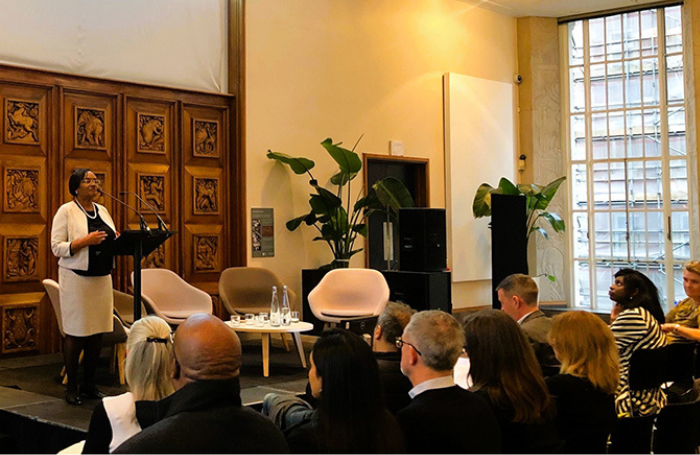Women’s History Month is a chance for us to celebrate women’s contribution to the built environment – a sector in which they have been historically under-represented and overlooked. This month, we consider how far we have come to overcome structural barriers to gender equity, and also recognise how far we still need to go.
On a personal note, I was delighted to be named one of the 50 Most Powerful Women in Architecture and Design by Dezeen in their power list to mark International Women's Day 2024. While I was pleased to receive this accolade, I would like to see many more women in positions of power in the built environment and beyond.
In just over a year as Chief Executive of RIBA, I have seen the organisation take great strides in addressing inequalities. In fact, its commitment to inclusion and diversity is one of the things that attracted me to the role – for me, equity cannot be compromised.
This month, I want to highlight some of my colleagues’ work to tackle gender inequity.
On 23 January 2024, I welcomed guests to our event about addressing gender inequity in the built environment, jointly delivered with our partner institutes in our Built Environment EDI Memorandum of Understanding, and hosted by RIBA’s Inclusion and Diversity team. The day provided a great opportunity to gain thought-provoking insight from a diverse group of women working across the built environment.
The speakers generously shared their expertise and lived experience, discussing the female perspective of professions from architecture to structural engineering.
I found it enlightening to hear about what is really happening on the ground in our sector. During talks and panel discussions, the speakers covered topics including reproductive rights in the workplace, how women are treated in a male-dominated space, misogyny, racism, pinkwashing, and how management and workplace culture needs to change.
Watch the full recording of the event: Addressing gender equity in the built environment below:
RIBA’s Business Benchmarking 2023 report, which tracks business trends across UK architecture practices, found that the gender balance among architects is slowly improving. But the Architects Registration Board (ARB)’s latest findings show that only 31% of architects are women – so the profession still doesn’t represent the society that it serves.
To make architecture more gender diverse, it must become a better profession for women to work in - and RIBA will not be a bystander. Many RIBA Chartered Practices are leading by example and making strides in gender equity in the workplace, so we are sharing their experiences of what works well.
Using insight from members, our Inclusion and Diversity team identified ten key actions you can take today to tackle gender inequity in your practice or workplace, from normalising difficult conversations to becoming a sponsor.

At the event in January, I was particularly struck by the first-hand account of Hannah Awonuga, Group Head of Diversity, Equity and Inclusion at Knight Frank. She said that, starting her career in property, she didn’t see people who looked like her, sounded like her, or came from where she came from, and this lack of role models made it hard for her to believe that she could be promoted. Hannah’s story shows that even in 2024, we still have work to do to create a fairer and more equal sector.
To create equal opportunities, she said that allies must be active - not just attending events and being visible, but using their power, privilege and position to help someone else succeed, even if it feels uncomfortable. This can support a diverse pipeline of talent for leadership roles, creating those role models that Hannah wished she had early on in her career.
Collaboration and open forums for discussion are so important to move the conversation forward. Built environment professionals are already great collaborators, and there is much they can learn from one another when it comes to gender equity. So, I’m delighted to continue our cross-industry efforts to improve equity, diversity and inclusion with our partner institutes in our Built Environment EDI Memorandum of Understanding.
This Women’s History Month, we must all recognise our individual responsibility in dismantling the barriers to gender equity, and keep the conversation going. Together, we can make a more inclusive and equitable future.
Explore resources and events to mark Women’s History Month 2024.









